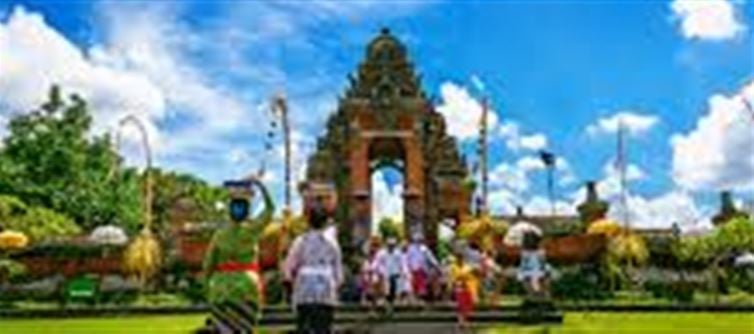
Banjar is recognized as the cleanest Hindu village in the world, located in Bali, Indonesia. Though indonesia is predominantly Muslim, this village stands out for maintaining a rich Hindu culture and an exceptional level of cleanliness. It is situated in the Tabanan Regency of Bali, about 40 kilometers from Denpasar, the capital city.
Why Banjar is the Cleanest Hindu Village
Banjar village stands out due to its pristine environment and sustainable practices that help it maintain cleanliness. Here's why it's famous:
1. Community Effort: The residents of Banjar village take pride in maintaining their surroundings. It's common for everyone to participate in cleanliness initiatives, including regular clean-up drives, waste segregation, and composting.
2. Cultural Commitment: hinduism plays a significant role in shaping the community's respect for nature and cleanliness. Regular ceremonies and rituals are often held to keep the environment sacred and pure.
3. Waste Management: One of the key factors contributing to its cleanliness is its efficient waste management system. The village has embraced sustainable waste practices such as composting, recycling, and organic waste treatment.
4. Tourism & Recognition: With a growing reputation as the cleanest Hindu village, Banjar attracts tourists who are keen to witness its beauty and the harmony between culture, religion, and cleanliness.
5. Natural Beauty: Banjar is surrounded by lush rice paddies, mountains, and forests, and the clean environment adds to the village's charm, making it a peaceful retreat for those looking to escape the hustle and bustle of urban life.
How to Reach Banjar Village
1. By Air:
The nearest airport is Ngurah Rai international Airport (DPS) in Denpasar, Bali, which is approximately 40 km away from Banjar village. You can take a taxi or a private car to reach the village. The journey will take around 1-1.5 hours, depending on traffic.
2. By Road:
After arriving at the airport, you can rent a car or use local transportation (such as a bemo or private taxi) to travel to Banjar. The roads are well-maintained, and you'll pass through scenic views of Bali’s rural landscapes.
3. By Public Transport:
While public transportation is available, it is less convenient for tourists who may not be familiar with local routes. It’s recommended to take a taxi or use ride-sharing services like Go-Jek or Grab for a comfortable journey.
4. Tour Packages:
Some local travel agencies in Bali offer guided tours to Banjar and nearby attractions, including the famous Hot Springs in Banjar village, making it easier for tourists to visit the area.
Things to See and Do in Banjar Village
1. Banjar Hot Springs: Known for its natural sulfuric hot springs, the Banjar Hot Springs is a relaxing spot for visitors. It’s believed to have therapeutic benefits, especially for those seeking relief from stress or muscle pain.
2. Traditional Temples: The village is home to beautiful Hindu temples, including Pura Desa Banjar and Pura Dalem Banjar, where you can observe traditional Balinese Hindu rituals.
3. Rice Terrace Views: Banjar’s location in Bali’s rural landscape offers stunning views of terraced rice fields, which are often the perfect backdrop for photographs.
4. Cultural Experiences: You can also experience Balinese culture up close by participating in local ceremonies or exploring the surrounding nature trails.
Conclusion
Banjar in Bali, indonesia, is a shining example of how a community can come together to maintain cleanliness and cultural integrity while respecting nature. This village proves that a combination of tradition, sustainable practices, and community effort can keep a place remarkably clean and eco-friendly.
If you're looking to explore a place that offers tranquility, natural beauty, and a deep sense of respect for the environment, Banjar is the place to visit. Whether you're traveling for a spiritual retreat or simply to witness the beauty of a clean, organized village, Banjar should be on your list! 🌿✨
Disclaimer:
The views and opinions expressed in this article are those of the author and do not necessarily reflect the official policy or position of any agency, organization, employer, or company. All information provided is for general informational purposes only. While every effort has been made to ensure accuracy, we make no representations or warranties of any kind, express or implied, about the completeness, reliability, or suitability of the information contained herein. Readers are advised to verify facts and seek professional advice where necessary. Any reliance placed on such information is strictly at the reader’s own risk..jpg)




 click and follow Indiaherald WhatsApp channel
click and follow Indiaherald WhatsApp channel